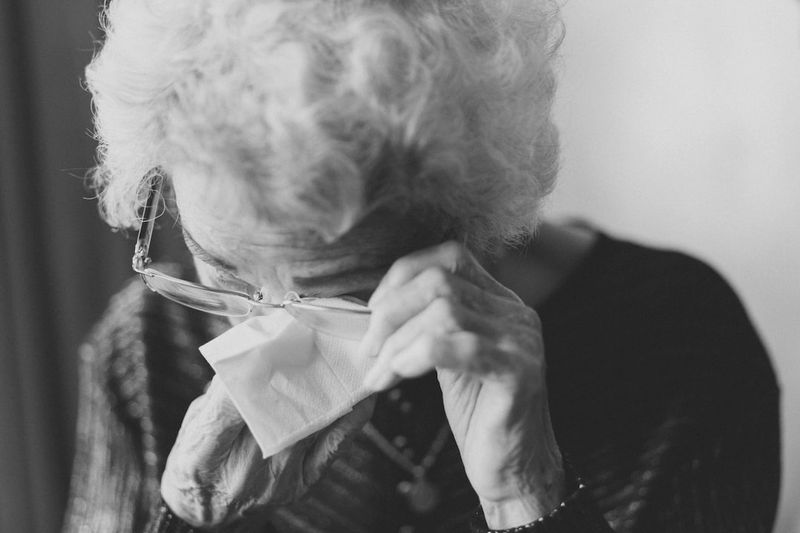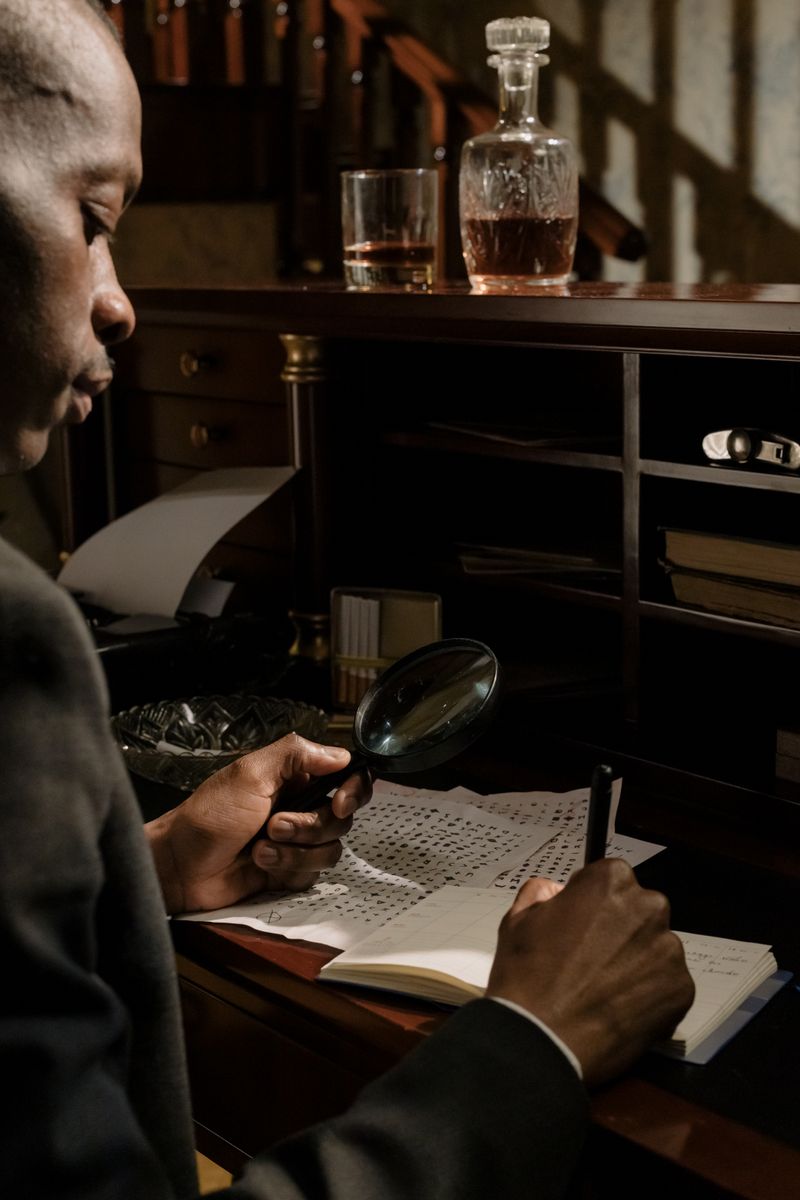Dad of Girl Murdered by Serial Killer Robert Black ‘Regrets’ Buying Bike She Was Snatched From
The father of one of serial killer Robert Black’s victims, Andy Cardy, has expressed regret over buying his daughter the bike she was riding when she was abducted. Jennifer Cardy, only nine years old at the time, was kidnapped and murdered by Black near her home in County Antrim in 1981. Black, already serving life for killing three other young girls, was sentenced to 25 years in 2011 for Jennifer’s murder and died in prison at the age of 68 in January 2016.
A Father’s Regret
Andy Cardy, now 74 years old, shared his remorse in a new documentary about the police investigation into Black’s crimes. Speaking about the last time he saw his daughter, Cardy recalled giving her a new bike for the school holidays, despite his wife’s objections. He said, “A little nine-year-old girl had just learned she could have her own new bicycle. The last sighting I would ever have of our little girl was her hair sweeping around her face as she closed the door behind her.”
Cardy also mentioned that his wife, Pat, had warned him against buying the bike, suggesting they save it as a Christmas present. However, Cardy insisted on giving the bike to Jennifer so she could enjoy riding it during the remaining school holidays. Looking back, Cardy expressed his regret, saying, “Pat didn’t want me to buy that bike, and if I hadn’t bought it, she wouldn’t have been out on that bike to be taken.”
The Tragic Abduction and Murders
Robert Black, a van driver originally from Grangemouth, Stirlingshire, stopped Jennifer before she reached a friend’s house. He abducted, sexually assaulted, and killed her before disposing of her body. In 1982, Black went on to abduct and murder 11-year-old Susan Maxwell near the border between Scotland and England. A year later, he killed five-year-old Caroline Hogg, who vanished from outside her home in Portobello, near Edinburgh. He also abducted and murdered 10-year-old Sarah Harper as she walked from a corner shop near her home in Morley, Leeds.
The Trauma and Desire for Revenge
In the documentary, Andy Cardy recounts the emotional trauma of having to identify his daughter’s body and expresses his desire for revenge against Jennifer’s killer. He recalls the moment he viewed Jennifer’s body, saying, “I can remember they opened the body bag and I had to be held up because I would have collapsed.” Due to the effects of being in the water for days, Cardy struggled to identify Jennifer until he saw her shoes.
Cardy admits that revenge consumed his thoughts at that time. He says, “If I had found out who had done what they did to Jennifer, I would have killed them. I mean that, I would have killed them. It was very important that he was caught. He could obviously do the same to another little girl.”
Analysis: Grief, Loss, and the Quest for Justice
The Weight of Grief
The story of Andy Cardy’s regret highlights the immense burden of grief that parents who have lost a child must carry. The pain is compounded by the constant questioning of “what if” and the desire to turn back time. Cardy’s regret over buying the bike his daughter was snatched from reflects a profound sense of guilt, the belief that somehow, his choice played a role in the tragic events that unfolded.
Grief is a complex emotion that can take many forms and evolve over time. It can be all-consuming, affecting every aspect of a person’s life. Parents often experience feelings of helplessness, self-blame, and a desperate longing for justice. In Cardy’s case, the desire for revenge against the person responsible for his daughter’s death consumed him.
The Search for Meaning and Healing
When faced with such profound loss, individuals often seek meaning and try to make sense of the tragedy that has befallen them. For Andy Cardy, the need for justice was intertwined with his grief. He believed that capturing Black was not only crucial for his personal healing but also to prevent further harm to innocent children.
However, true healing and closure are elusive in such cases. While the capture and imprisonment of the perpetrator provide a sense of justice, they cannot bring back the lost loved one or erase the pain inflicted upon the family. The scars of grief remain, and the journey towards healing is a long and arduous one.
Editorial: The Complexity of Grief and the Search for Meaning
The story of Andy Cardy’s regret sheds light on the profound complexity of grief and the deep emotional turmoil parents experience after the loss of a child. It serves as a stark reminder of the long-lasting impact that heinous crimes can have on families and communities.
The instinct to hold oneself responsible for a tragedy is a common manifestation of grief. Parents often question their actions, wondering if they could have done something differently to protect their child. However, it is crucial to remember that no parent should bear that burden alone. In the face of grief, society must provide support, understanding, and empathy.
Furthermore, the search for justice represents a fundamental human need in the aftermath of these devastating events. Families of victims often view the capture and prosecution of the perpetrator as necessary steps towards healing and closure. It is therefore essential that law enforcement agencies, prosecutors, and the justice system as a whole prioritize the thorough investigation and prosecution of such cases.
Advice: Coping with Grief and Seeking Support
Reaching out for Support
Grief is an incredibly challenging experience, and it is important for those who have lost a loved one to seek support from friends, family, and professional resources. Sharing emotions and memories with others who have experienced similar loss can help alleviate the burden of grief. Organizations such as support groups, grief counselors, and therapists specializing in trauma can provide valuable assistance during this difficult journey.
Exploring Therapy Options
Therapy can be an instrumental tool in coping with grief and navigating the complex emotions that accompany it. Various therapeutic approaches, including cognitive-behavioral therapy (CBT) and grief counseling, can provide individuals with a safe space to process their feelings, explore coping mechanisms, and gradually work towards healing. It is important to consult with a mental health professional to determine the therapy approach that best suits your needs.
Self-Compassion and Acceptance
Grieving individuals must remember to be kind to themselves and practice self-compassion. It is essential to acknowledge that grief is a natural response to loss and that healing takes time. Accepting the range of emotions that arise during the grief process is an important part of the healing journey. Remember, seeking support does not indicate weakness but rather strength and resilience in the face of immense pain.
Advocating for Justice
While seeking justice may provide some semblance of closure, it is crucial to acknowledge that it may not erase the pain entirely. Advocating for justice can be emotionally draining, and individuals must prioritize their own well-being throughout the process. Engaging with advocacy groups, legal support, and victim services can provide guidance and assistance in navigating the justice system.
In conclusion, the story of Andy Cardy’s regret serves as a poignant reminder of the complexity of grief and the overwhelming sense of loss that accompanies the tragedy of a child’s murder. It calls on society to provide support, understanding, and justice to grieving families, while also highlighting the importance of seeking professional assistance and engaging in self-care during the healing process.

<< photo by Jeremy Wong >>
The image is for illustrative purposes only and does not depict the actual situation.




